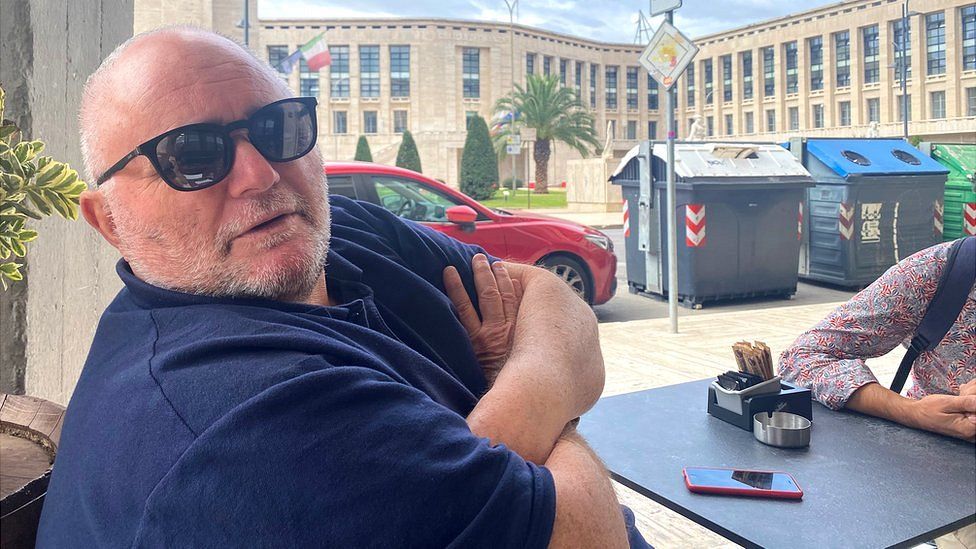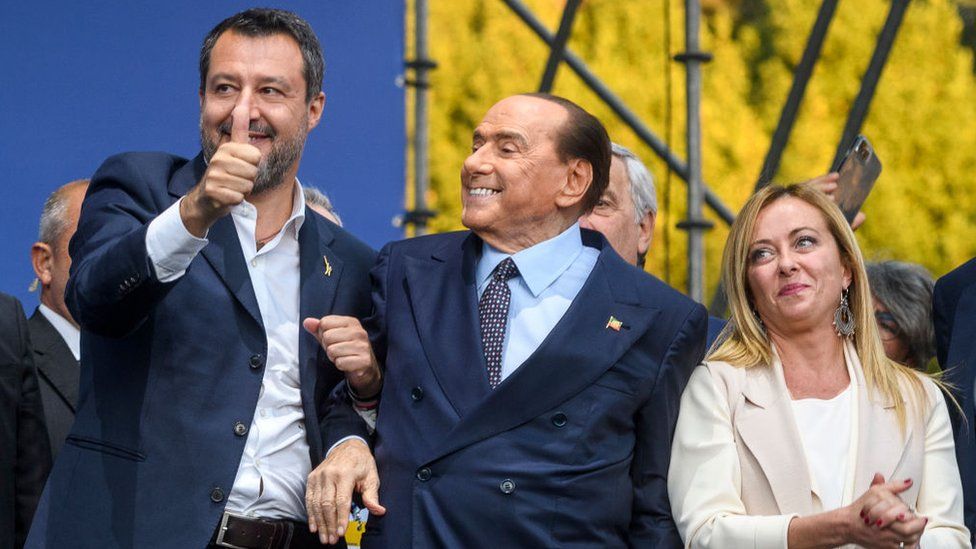Italians are deciding whether to choose their most right-wing government since World War Two, in an election being followed closely across Europe.
Giorgia Meloni leads the far-right Brothers of Italy party and is aiming to become the country’s first female prime minister allied with two other parties on the right.
She has softened her image and resents being linked to Italy’s fascist past.
Almost 51 million Italians have the right to vote until 23:00 (21:00 GMT).
President Sergio Mattarella cast his ballot early in the Sicilian capital Palermo, while Ms Meloni’s main rival – centre-left leader Enrico Letta – voted in Rome and her far-right ally Matteo Salvini voted in Milan. There are 2.6m first-time voters and 4.7 million abroad.
Giorgia Meloni backs Western sanctions on Russia and has toned down rhetoric on Europe.
But she still embraces an old slogan adopted by the fascists – “God, fatherland and family” – she has spoken out against the “LGBT lobby” and called for a naval blockade of Libya to halt migration.
An hour south of Rome, in the town of Latina, observers believe the far right can seize the town from the left. Founded in 1932 by fascist leader Benito Mussolini, Latina still bears traces of the dictator, but has suffered from years of underfunding.
“Take a look, it’s a disaster,” says one passer by. The town has had a left-wing mayor in recent years, but the far right has Latina in its sights. Matteo Salvini came here last week to round off his League party’s campaign. Centre-right Forza Italia under ex-prime minister Silvio Berlusconi, 85, is also part of her coalition.

“Meloni speaks to the guts of the people,” says Gianluca Atlante, a journalist with local newspaper Latina Oggi. Behind him sits the imposing Palazzo Emme, built in the shape of a letter M for Mussolini. These days it serves as the local headquarters of the finance ministry’s law enforcement agency.
Italy’s economy was picking up after the Covid-19 pandemic, but then the energy crisis – largely triggered by Russia’s invasion of Ukraine – sent prices soaring. While the politicians have spent recent days arguing over Russia and Europe, Italians are most worried about paying their bills.
The EU agreed to send Italy an eye-watering €200bn (£178bn) in post-Covid recovery grants and loans but that is conditional on reforms agreed by the outgoing unity government of Mario Draghi. Giorgia Meloni has called for the plan to be revised and has talked of doing more to “defend” Italy’s national interests in the EU.
No wonder many of Europe’s leaders are watching this vote closely.

Until early August, Italy’s left and centre parties were aiming to mount a joint challenge to the Meloni alliance. But they failed to reach agreement, and Ms Meloni’s biggest rival in the opinion polls – centre-left Democratic Party leader Enrico Letta – now faces an uphill struggle.
He even shares several policies with the Five Star Movement led by Giuseppe Conte, but they do not see eye to eye.
From right to left, the politicians agree Italy’s school system is in a state of decay but schoolteachers such as Elisa are sceptical this election will change that.

Italians are electing two houses of parliament – the Chamber and the Senate – and under new rules their size has been cut by a third, so the Chamber has 400 seats and the Senate 200.
That is likely to help the winning alliance most, when coupled with Italy’s mixed electoral system. More than a third of seats are won by a UK-style first-past-the-post constituency contest, and more than 60% by proportional representation across Italy.
Any alliance that wins 40% of the vote could win as many as 60% of seats, Italian commentators believe. It is a new system so it is being closely watched, and by the right-wing alliance especially, because they need the backing of two-thirds of the parliament to carry out one of their keynote policies.
Even if Brothers of Italy do top the vote, and Giorgia Meloni’s allies hand her an overall majority, it is not their decision who becomes prime minister. That rests with President Mattarella, backed by parliament, and he plays an important role in Italy’s constitution.
Ms Meloni and her allies want a radical change to his role by making him a directly elected head of state rather than an impartial figure chosen by parliament. “Presidentialism” may sound more democratic, but there’s a reason why some Italians are worried by the thought of handing more power to their head of state – and that also goes back to Italy’s previous experience of fascism.
In Latina, they are not just watching the political battle playing out between left and right, there is another story that is also on people’s minds.
Standing for the Senate is one of Italy’s most treasured stars of the past, Gina Lollobrigida. Now 95, she became a cinema legend in the 1960s and she has defied a fractured femur to fight in Sunday’s election.





